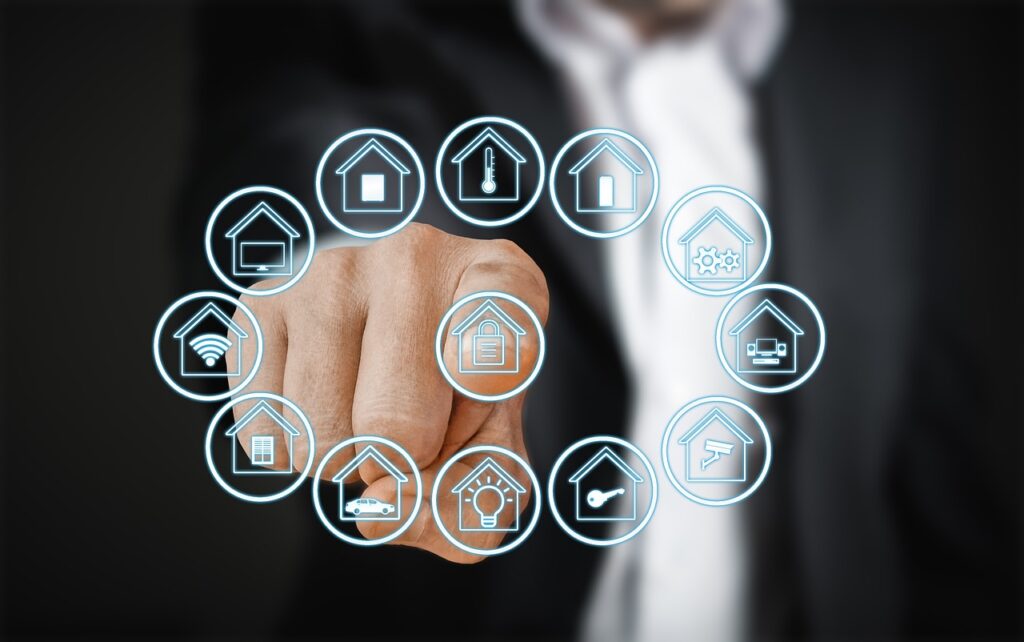Home Automation Evolution: How Artificial Intelligence is Transforming Smart Homes
Home automation, which refers to automating home functions, has advanced significantly thanks to artificial intelligence (AI). This technology not only enhances comfort and efficiency but also changes the way we interact with our smart homes. In this article, we explore how AI is transforming this field and what it means for the future of home technology.
1. Integration of AI in Smart Homes
Artificial intelligence has deeply penetrated the home automation sector, elevating the capability of smart systems to perform more complex tasks. Modern devices are no longer limited to pre-programmed actions; they now learn from user behavior to anticipate needs.
Virtual assistants like Alexa, Google Assistant, and Siri can now recognize patterns in our daily routines. This allows them to provide more accurate recommendations and automatically adjust home settings to align with personal preferences, creating a more intuitive and adaptable environment.
2. Personalization Through Machine Learning
One of the most notable advances in AI within home automation is the ability to personalize the home experience. Devices equipped with machine learning can study habits and adjust their functions accordingly.
For instance, a smart thermostat can not only adjust the temperature based on the time of day but also learn your preferences and adapt before you even arrive home. This type of personalization enhances comfort and energy efficiency by preventing unnecessary energy use.
3. Intelligent Automation: Beyond the Basics
Automation in smart homes has evolved from simple preset schedules to more advanced systems that respond in real-time. AI-based systems can create dynamic rules that adapt to changes in the environment and new needs.
For example, AI-driven lighting systems can adjust the brightness and color of lights based on factors like time of day and weather conditions. This not only improves the home’s ambiance but can also impact residents’ well-being and productivity.
4. Natural Interaction with Virtual Assistants
Artificial intelligence has enabled smoother and more natural interaction with virtual assistants. The ability to process natural language allows for more intuitive communication with these devices.
AI-based assistants can interpret complex commands and respond to requests in everyday language. For example, instead of using specific commands, you can say “I want to relax,” and the system will automatically adjust the lighting and temperature to create a calm atmosphere.
5. Enhanced Security and Surveillance
Home security has improved with the integration of AI into surveillance systems. AI-equipped security devices can analyze images and behaviors to detect suspicious activities.
These systems can differentiate between different types of motion, such as the presence of an intruder versus a pet. Additionally, they can learn from past events to adjust their algorithms, improving accuracy and reducing false alarms.
6. Efficient Resource Management
Artificial intelligence is also transforming how we manage resources in our homes. AI-powered energy monitoring devices can analyze consumption and offer recommendations to optimize energy usage.
For example, an AI-based energy management system can identify inefficient usage patterns and suggest adjustments in the use of appliances. This helps reduce costs and contributes to environmental sustainability by minimizing energy waste.
7. Support for the Elderly and Disabled
AI plays a crucial role in improving the quality of life for the elderly and disabled. Home automation systems equipped with AI can provide personalized assistance and support in the home.
These devices can remind individuals to take medications, provide reminders for daily activities, and send alerts in case of emergencies. The integration of AI allows for greater autonomy and security, making daily life easier for these individuals and offering peace of mind to their families.
8. Convergence with the Internet of Things (IoT)
Artificial intelligence not only enhances individual devices but also optimizes the integration between various systems in the home. The combination of AI and the Internet of Things (IoT) enables seamless and coordinated communication between different devices.
For example, smart home systems can synchronize with smart appliances and energy systems, creating a fully integrated domestic environment. This coordination increases efficiency and functionality, allowing for more effective home management.
9. Looking Ahead: The Future of AI in Home Automation
As artificial intelligence technology continues to advance, the future of home automation looks even more promising. Advances in areas like predictive AI, natural language processing, and computer vision are driving innovation in this field.
These developments will enable smart homes to become even more adaptive and personalized, offering a unique and enhanced home experience for users.


